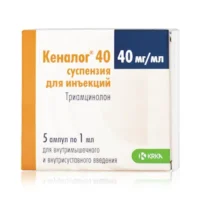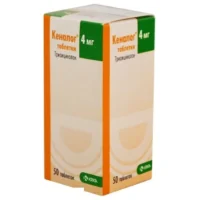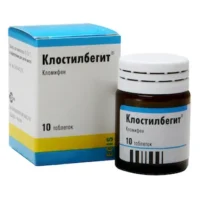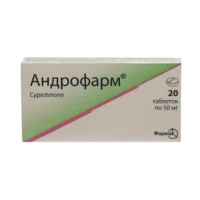Description
Depo-Medrol (Methylprednisolone) Suspension 40 mg/ml – 1ml Vial
Composition:
Depo-Medrol contains methylprednisolone acetate, polyethylene glycol, benzyl alcohol, and sodium chloride.
Mechanism of Action:
Depo-Medrol acts by inhibiting the inflammatory response and immune system activity. It blocks the production of certain chemicals that trigger inflammation, providing relief from pain and swelling.
Pharmacological Properties:
The medication inhibits inflammation and suppresses the immune response, making it effective in managing conditions where inflammation plays a key role.
Indications for Use:
- Allergic reactions
- Arthritis
- Dermatologic diseases
- Endocrine disorders
- Respiratory diseases
Contraindications:
Depo-Medrol is contraindicated in patients with systemic fungal infections, hypersensitivity to corticosteroids, and those receiving live virus vaccines.
Side Effects:
Possible side effects include adrenal insufficiency, tissue atrophy at the injection site, bone density loss with long-term use, and increased risk of infections.
Usage Instructions:
Depo-Medrol is administered intramuscularly or intra-articularly. Dosage ranges from 4 to 80 mg depending on the condition being treated. Healthcare professionals should administer the injection, rotating the site to prevent tissue atrophy.
Benefits Compared to Analogues:
Studies have shown that methylprednisolone has similar effectiveness to other corticosteroids but with a longer duration of action, allowing for less frequent dosing and reduced treatment burden.
Suitable Patient Groups:
Depo-Medrol is suitable for adults, children, and elderly patients for the management of inflammatory conditions.
Storage and Shelf Life:
The product should be stored as per the packaging instructions and within the specified temperature range. Check the expiration date before use.
Packaging Description:
The product comes in a 1ml vial containing a suspension of 40 mg/ml of methylprednisolone.
Clinical Evidence and Proven Effectiveness:
Studies have demonstrated the efficacy of methylprednisolone in reducing inflammation and managing pain in conditions like knee osteoarthritis. Research published in the Journal of Clinical Rheumatology supports the effectiveness of intra-articular methylprednisolone injections.





